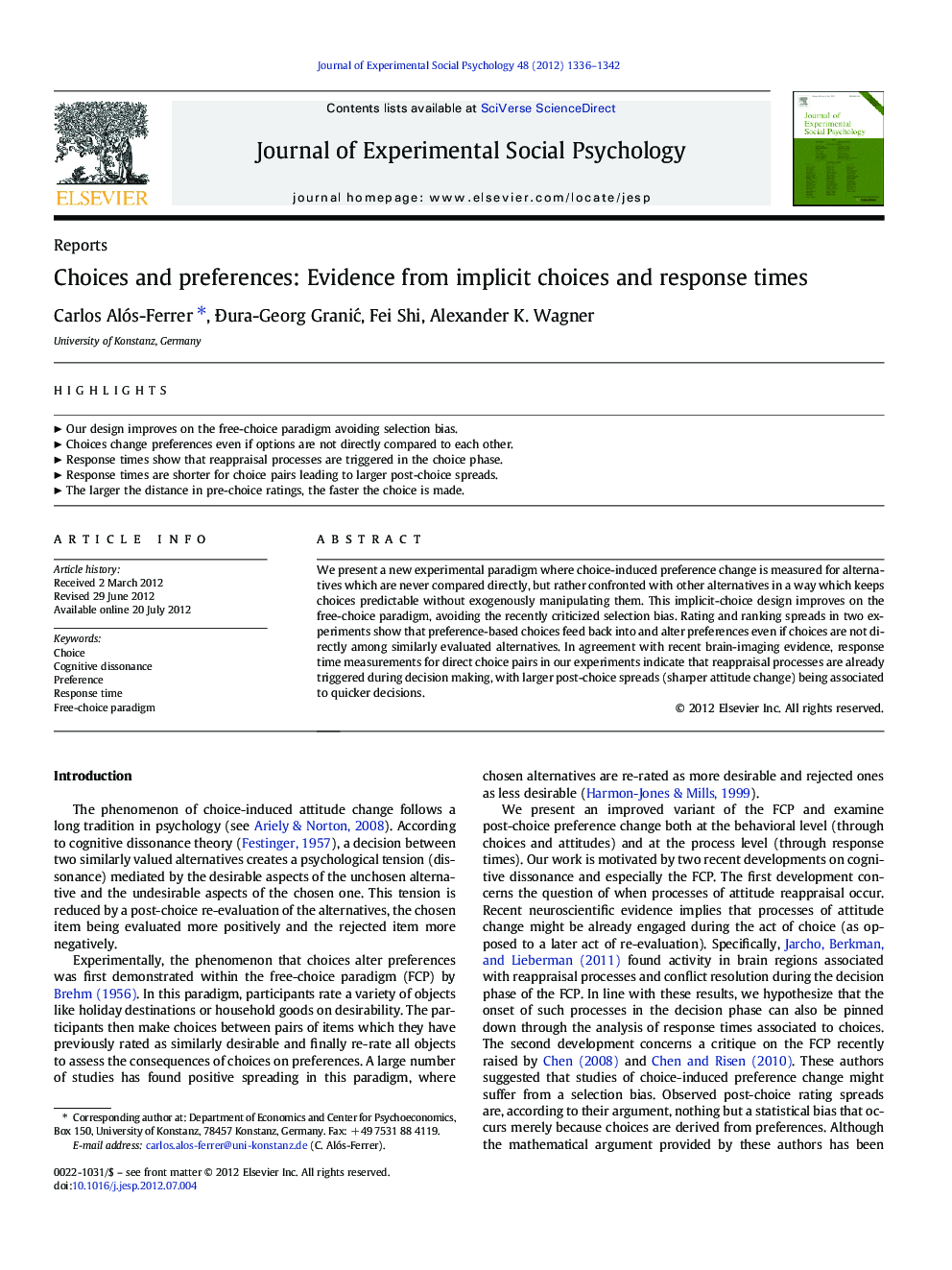| Article ID | Journal | Published Year | Pages | File Type |
|---|---|---|---|---|
| 948082 | Journal of Experimental Social Psychology | 2012 | 7 Pages |
We present a new experimental paradigm where choice-induced preference change is measured for alternatives which are never compared directly, but rather confronted with other alternatives in a way which keeps choices predictable without exogenously manipulating them. This implicit-choice design improves on the free-choice paradigm, avoiding the recently criticized selection bias. Rating and ranking spreads in two experiments show that preference-based choices feed back into and alter preferences even if choices are not directly among similarly evaluated alternatives. In agreement with recent brain-imaging evidence, response time measurements for direct choice pairs in our experiments indicate that reappraisal processes are already triggered during decision making, with larger post-choice spreads (sharper attitude change) being associated to quicker decisions.
► Our design improves on the free-choice paradigm avoiding selection bias. ► Choices change preferences even if options are not directly compared to each other. ► Response times show that reappraisal processes are triggered in the choice phase. ► Response times are shorter for choice pairs leading to larger post-choice spreads. ► The larger the distance in pre-choice ratings, the faster the choice is made.
